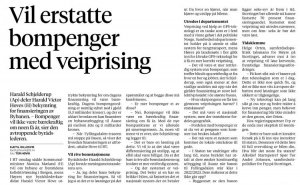So people would call and say, “I’m trying to get health insurance for me or my family or my kid,” and I’d try to sell them health, life, and dental, all individual plans. Part of that process is that you screen people for pre-existing conditions. There were three different stages of screening. The first thing, right at the beginning of the call, I’d ask a couple questions sort of off-the-cuff. Frankly, if I knew they were going to be declined, I was wasting my time talking to them.
So I’d ask, casually, whether they had a history of heart disease, diabetes, cancer, heart attacks. Kind of develop a rapport. That caught a pretty good chunk, diabetes especially. And I asked all that before I even made the sales pitch, so the phone call would be, like, two minutes long. If they got declined I’d tell them what other options they had, based on what state they were in. I had a computer terminal that told me what each state offered. Florida was pretty good. Some states had literally nothing, and that was pretty hard. All I could say is, call other companies, knowing they would decline them. Maybe I’d tell them to find employment somewhere with group health insurance.
But if they made it through those kind of off-the-cuff questions, we’d go to the application process. On the very first screen on my computer console, it listed something like 20 of the most common conditions that would cause someone to be declined. If they had any of those there was no point in going further. They were things like chronic obesity, pulmonary disease, chronic inflammation, ulcerative colitis. If at any point in your life you’d had a heart attack or a stroke, declined. Most forms of cancer, but not all. Pregnancy.
For many people, this was not the first insurance place they called. They had already been declined. On our applications, there was a question that was like, “Have you ever been declined from another company?” But there’s so much uniformity; you either qualified with one of us or none at all. Pregnancy was an issue, too, though if you were single and pregnant you weren’t always up shit’s creek. Many of the states allowed you to get on Medicaid, which was almost always a better plan than what I was selling, anyway.
So after that list of 20 questions, we’d really get to the meat. It was like, a 45-minute phone call, maybe. Question: Have you or anyone on this policy ever had asthma? A history of osteoporosis? It was close to 100 questions. And after we completed it, I’d go to the underwriting department. They’d look at the application, and obtain people’s medical records from the Medical Information Bureau, and they had the final say. Sometimes they’d approve them cleanly, sometimes they’d flat-out deny. Or they’d approve you with a premium rate adjustment, like, we’re going to approve you but your BMI is too high and you’re obese so we’re going to give you a 25% premium rate increase.
Some things, like asthma, we’d approve you, but with a rider. If you need an inhaler, or an emergency visit for an asthma attack, we’d give you a policy that covers everything except that. People would be like, that’s the whole reason I wanted to plan! Sometimes the underwriter would uncover that the person lied to me, and I don’t really but every time you file a claim, all those insurance companies are sharing the information with each other. So that would be an awkward conversation I’d have to have.










